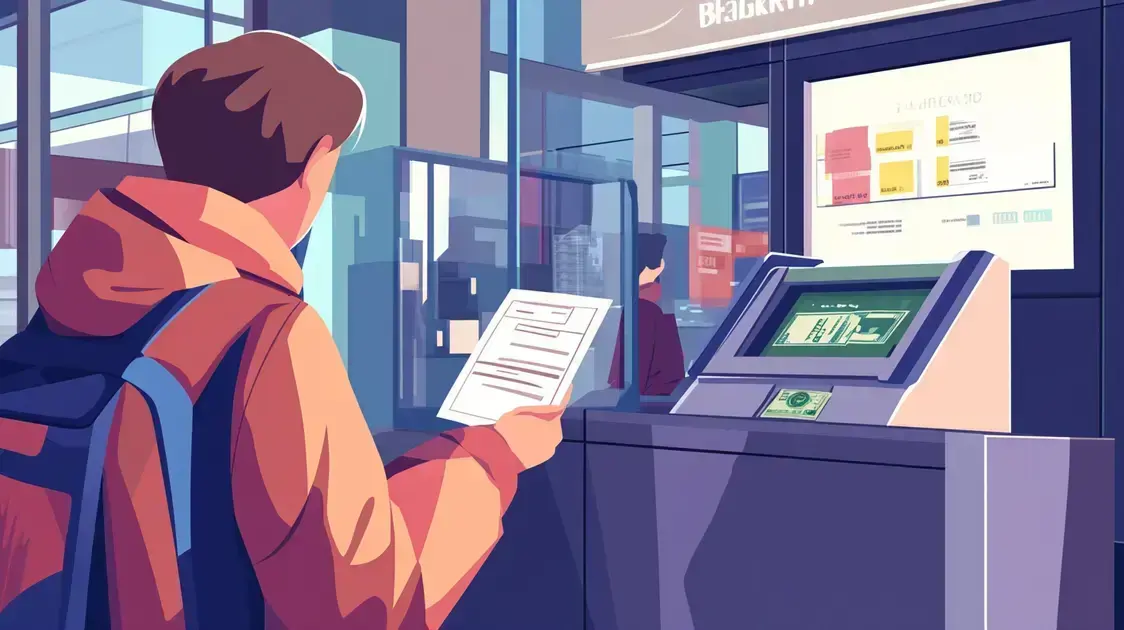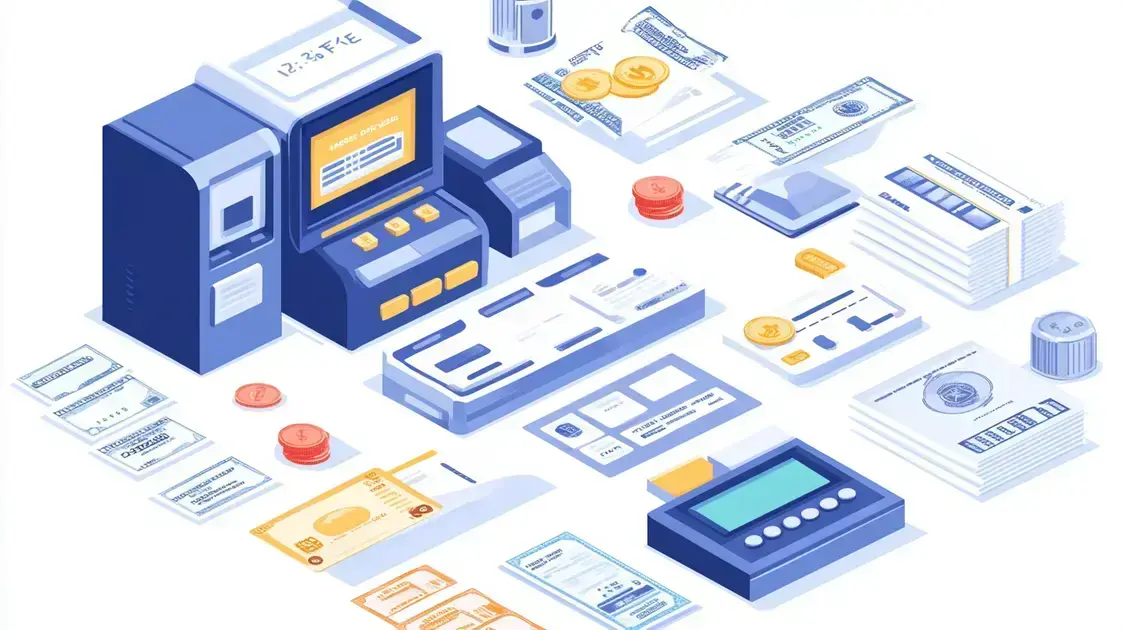Índice
Deposit Money safely is essential to protecting your financial well-being. Choosing secure websites and trusted platforms helps minimize risks and keeps your personal data safe. It’s the first step toward maintaining control over your money.
Using tools like two-factor authentication adds an extra layer of protection when you Deposit Money. Keeping a close eye on your accounts can also help you spot any unusual activity early and respond quickly.
Whether you prefer online banking, mobile apps, or cash deposits, always use reliable methods when you Deposit Money. Want to know the smartest ways to do it while avoiding unnecessary fees and scams? Keep reading and take control of your financial journey.
Understanding Different Methods to Deposit Money
Understanding different methods to deposit money is essential for anyone looking to manage their finances efficiently. There are various ways to achieve this, each suited to different needs and preferences. This guide explores the primary methods available today, helping you choose the best option for your situation.
1. Bank Transfers
One of the most common methods for depositing money is through bank transfers. You can easily move funds from one account to another, either within the same bank or between different banks. This method is secure and can often be done online or via a mobile app.
2. Cash Deposits
Cash deposits remain a popular choice, particularly for those who prefer handling physical currency. You can deposit cash directly at a bank branch or an ATM that accepts cash. This method provides immediate availability of funds in your account.
3. Mobile Apps
In today’s digital age, mobile apps offer a quick and convenient way to deposit money. Many banks provide dedicated apps that allow users to upload checks or transfer money easily. Just take a photo of your cheque and submit it through the application.
4. Payment Services
Services like PayPal, Venmo, or TransferWise have become popular for depositing money and transferring funds between individuals. These platforms allow you to quickly send money using your bank account or credit card with minimal fees.
5. Payroll Direct Deposits
If you’re employed, you may have the option for payroll direct deposits. This means your salary is automatically deposited into your bank account, which eliminates the need for physical paychecks and simplifies your savings.
6. Money Orders
For those who do not have access to a traditional bank account, money orders can be a good alternative. They can be purchased at various locations and used effectively as a secure means to deposit money into a bank account.
7. Cheque Deposits
Finally, cheque deposits are a traditional way to deposit money. You can give a cheque to your bank, either in person or by using an ATM. It usually takes a few days for the funds to become available while the payment processes.
Online Banking: A Convenient Option for Deposits
Online banking has become a popular choice for many people looking to deposit money conveniently. With the rise of digital finance, most banks now offer robust online services that allow customers to manage their accounts from anywhere with internet access.
Ease of Access
One of the main advantages of online banking is the ease of access it provides. You can deposit money at any time, without the need to visit a bank branch. This flexibility is especially beneficial for those with busy schedules or those living in remote areas.
Transfer Funds Instantly
Online banking allows for instant transfers between accounts. Whether you’re moving money to a savings account or sending funds to someone else, the process is quick and efficient, ensuring that your money is available when you need it.
Mobile Banking Features
Many banks also offer mobile banking apps that make it even easier to deposit money. You can simply log in to your app, follow the instructions for deposits, and complete the transaction directly from your smartphone.
Account Management
Online banking platforms also enable you to manage your finances effectively. You can view your transaction history, set up automatic payments, and even track your savings goals, all in one place.
Security Measures
While convenience is a major advantage, banks also invest heavily in security measures to protect your information. Look for features like two-factor authentication and encryption that ensure your bank details are safe.
Support and Resources
Most online banking services come with customer support options. If you ever experience any issues while trying to deposit money or manage your account, many banks provide online chat options or customer service lines available to assist you.
Fees to Consider
Although online banking is often free, some banks might charge fees for specific transactions. It’s important to understand your bank’s fee structure before depositing, as this can influence your overall banking experience.
Cash Deposit: The Traditional Way

A cash deposit is the traditional method of depositing money into your bank account. This method has stood the test of time and remains popular, particularly among those who prefer handling physical currency.
How to Make a Cash Deposit
To make a cash deposit, visit your local bank branch. Once there, approach a teller and provide them with the cash you wish to deposit. You may need to fill out a deposit slip that includes your account number and the amount of money being deposited.
Using ATMs for Cash Deposits
Many banks now offer ATMs that accept cash deposits. Using these machines is straightforward: insert your bank card, select the deposit option, and follow the on-screen instructions. This method is useful for those who wish to deposit cash outside of regular bank hours.
Immediate Availability of Funds
One of the main advantages of making a cash deposit is that funds are often available immediately. This means you can access your deposited money right away, which is especially handy for urgent payments or purchases.
No Need for Technology
The cash deposit method does not require any technology or internet access. This makes it perfect for individuals who may not be comfortable with online banking or digital transactions.
Security Considerations
When making a cash deposit, it is important to ensure your safety. Always be aware of your surroundings when handling cash. If possible, deposit money during business hours when the bank is busy.
Tracking Your Deposits
After making a cash deposit, keep your receipt as proof of the transaction. This document can be helpful for tracking your deposits and reconciling your bank statements later.
Potential Fees and Limits
While cash deposits are generally free, some banks may impose limits on the amount you can deposit at one time or charge fees for certain transactions. Be sure to check with your bank to understand any policies that could apply.
Using ATMs for Quick Money Deposits
Using ATMs is a convenient and efficient way to deposit money quickly. Many banks offer ATMs that allow customers to make cash deposits without needing to interact with a teller. This method saves time and is perfect for those with busy schedules.
Finding an ATM
To use an ATM for deposits, start by locating a compatible machine. Many banks provide an ATM locator service on their website or mobile app, helping you find the nearest ATM that accepts cash deposits.
Steps to Deposit Cash at an ATM
Once you arrive at the ATM, follow these simple steps: Insert your bank card and enter your PIN. Select the deposit option, and choose the account where you want to add the funds. Then, insert the cash into the designated slot, ensuring that the bills are flat and unwrinkled for optimal processing.
Immediate Access to Funds
One of the significant advantages of using an ATM for deposits is that the cash you deposit is usually available in your account almost immediately. This is perfect for urgent needs, such as making payments or purchases.
Receipt for Your Transaction
After depositing your money, the ATM will issue a receipt. This document serves as proof of your transaction and can help you keep track of your deposits and bank statements.
Depositing Cheques at ATMs
Besides cash deposits, many ATMs also allow you to deposit cheques. Similar to cash, place the cheque in the provided slot, ensuring it is correctly oriented. The ATM will scan the cheque and process it accordingly.
Fees and Limits
While depositing money at an ATM is generally free, some banks may have limits on the amount you can deposit in a single transaction or per day. Be sure to check with your bank for specific details regarding fees or limitations.
Security Considerations
Using an ATM can be safe as long as you take precautions. Always choose ATMs located in well-lit, busy areas. After the transaction, securely put away your cash and card before leaving the machine.
Mobile Apps for Easy Money Deposits
Mobile apps have revolutionised the way we manage our finances, making it easier than ever to deposit money. With just a few taps on your smartphone, you can transfer money into your bank account or save for a future goal.
Convenience at Your Fingertips
Using a mobile banking app means you can deposit money whenever and wherever you want. There’s no need to visit a bank or ATM. Whether you’re at home, at work, or on the go, your bank is always just a click away.
How to Deposit Money Using a Mobile App
To make a deposit via a mobile app, first, log into your bank account. Look for the option to deposit funds, which is often located under the ‘Transactions’ or ‘Deposit’ section. You will usually need to take a photo of a cheque or enter cash details. Follow the instructions provided to complete your deposit.
Instant Notification
One great feature of mobile banking apps is the immediate notification you receive after making a deposit. This allows you to keep track of your finances in real-time, knowing instantly when your funds are available.
Accessibility for Everyone
Most mobile banking apps are designed to be user-friendly, making it easy for everyone, even those who are not tech-savvy, to deposit money. The layout is intuitive, and many apps provide walkthroughs to assist you with the deposit process.
Security Features
When using mobile apps for banking, security is a priority. Look for apps that offer two-factor authentication and encryption to protect your data. Keeping your app updated also helps ensure that you benefit from the latest security measures.
Monitoring Your Deposits
With mobile banking apps, you can keep a record of your deposits and transactions. This feature helps you budget effectively and monitor your spending habits.
Potential Fees
Check with your bank to learn about any potential fees associated with using the mobile app for deposits. Although many banks offer free deposit options, some may charge fees for certain transactions or services.
Exploring Fees Related to Depositing Money

When considering how to deposit money, it’s important to understand the potential fees that may apply. While many banks offer free deposit options, certain methods may incur charges. Being aware of these fees can help you make informed financial decisions.
Types of Fees
Different banks have varying fees associated with deposits. Common types of fees include:
- ATM Deposit Fees: Some banks charge fees if you use ATMs that do not belong to their network. Always check beforehand to avoid unexpected costs.
- Cash Deposit Fees: Depending on the bank, there could be fees for cash deposits beyond a set limit.
- Cheque Deposit Fees: Certain banks may charge a fee if you deposit cheques from accounts that are not linked to the bank.
Online and Mobile Banking Fees
While using online or mobile banking for deposits is generally free, some banks might impose charges for expedited processing or special services. Always read the terms and conditions associated with your banking platform to avoid surprises.
Foreign Currency Deposits
If you’re depositing foreign currency, expect to pay conversion fees. Banks typically apply a fee for exchanging the currency, which can add to the cost of your deposit.
Account Maintenance Fees
Some banks charge monthly maintenance fees on certain types of accounts, which may affect your balance and overall financial health. Maintaining a minimum balance or meeting additional criteria can often waive these fees.
Understanding Your Bank’s Fee Structure
Every bank has its own fee structure, so it’s essential to review your bank’s fee schedule before making deposits. This ensures you are fully informed about potential costs related to your money management.
Ways to Avoid Fees
To avoid deposit fees, consider using ATMs within your bank’s network, opting for online or mobile deposits when possible, and maintaining the required minimum balance as stipulated by your bank.
Security Tips for Depositing Money Online
When depositing money online, security is paramount. Follow these essential tips to ensure your transactions remain safe and your personal information is protected.
Use Secure Websites
Always make sure you are using a secure website. Look for HTTPS in the web address, which indicates that the site is secure. A padlock icon in the browser also signifies a secure connection.
Enable Two-Factor Authentication
Two-factor authentication (2FA) adds an extra layer of security to your online accounts. By requiring an additional code sent to your phone or email, it makes it much harder for someone to access your account.
Update Your Passwords Regularly
Use strong and unique passwords for your online banking accounts. Change them regularly and avoid using the same password across multiple sites. A mix of letters, numbers, and special characters is recommended.
Beware of Phishing Scams
Always be cautious of emails or messages that ask for your personal information. Legitimate banks will never ask for sensitive information via email. If in doubt, contact your bank directly.
Keep Your Software Updated
Ensure that your computer, smartphone, and any security software are always up-to-date. Regular updates help protect against malware and vulnerabilities that could compromise your account.
Use Trusted Networks
Avoid accessing your banking information on public Wi-Fi networks, as they may not be secure. Use a trusted, private network whenever possible to protect your information during online transactions.
Monitor Your Accounts
Regularly check your bank statements and transaction history for any unauthorised transactions. Report any suspicious activity to your bank immediately to take prompt action.
Check out our article on Emergency Fund to learn how to build a financial safety net that will protect you in times of unexpected expenses.
